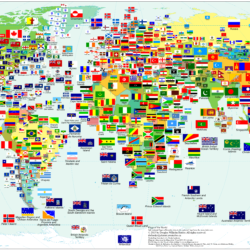
How FinTech Partnerships Are Bringing Nations Together

FinTech is a global phenomenon. This is well known by this point. (Check out our e-book on the subject for more info.) In almost every corner of the world, people, businesses and countries are using the latest financial technology to refresh their economy and position themselves as powerhouses on the world stage. For startups wanting to reach a larger market, the blueprint set up by countries can serve as a great learning tool.
It can be incredibly hard to master the new world market by yourself. That’s not to say it’s impossible, but the risk of failing (and failing spectacularly) is quite high. The question then becomes: what can countries do to better increase their chance of success in the world market? If you wait until you’re fully prepared to handle the FinTech business on your own, you run the risk of missing the boat and therefore missing out on incredible financial opportunities.
There is an answer: Partnerships. By entering into a partnership with a stronger country (or company) the country (or startup) can be confident in its future while exploring development opportunities. These partnerships–or cooperation agreements–are becoming a real force on the world stage and so far 2017 is proving to be a year of partnerships.
Back in March 2017, the Monetary Authority of Singapore (MAS) partnered with Japan’s Financial Services Agency (FAS) and Abu Dhabi Global Market (ADGM). Thanks to this partnership, FinTech companies from these countries now have easier access to their partner
Then in May 2017, the U.K.’s Financial Conduct Authority (FCA) teamed up with Hong Kong’s Securities and Futures Commission (SFC) to create partnerships and foster innovations in both countries’ FinTech markets.
June 2017 was a big month for these partnerships. SFC entered another partnership, this time with the Australian Securities and Investments Commission (ASIC). Also, the Danish Financial Supervisory Authority (FSA) and (Singapore’s) MAS co-signed an agreement that will make it easier for financial innovators in these countries to work in (and with) the other’s marketplace.
This wave of partnerships will no doubt continue and this is a very good thing. These national partnerships mean these countries’ innovators are gaining valuable insight and perspective from entrepreneurs who see the world at a slightly different angle. This improved knowledge will help companies reinvigorate their businesses and turn FinTech into an even stronger global phenomenon. And that’s something we should all be thankful for.

